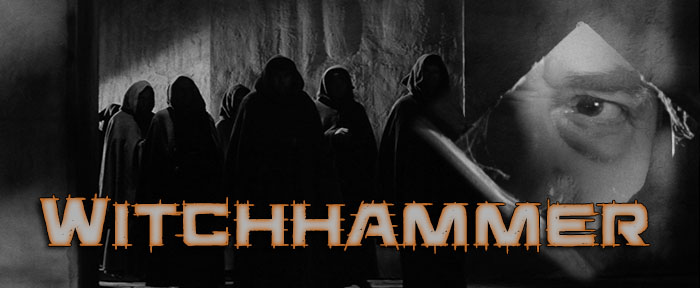
B&W, 1970, 106 mins. 48 secs.
Directed by Otakar Vávra
Starring Vladimír Smeral, Elo Romancik, Josef Kemr, Sona Valentová, Blanka Waleská
Second Run (Blu-ray & DVD) (UK R0 HD/PAL) / WS (2.35:1) (16:9), Facets (DVD) (US R1 NTSC) / WS (2.35:1)
One 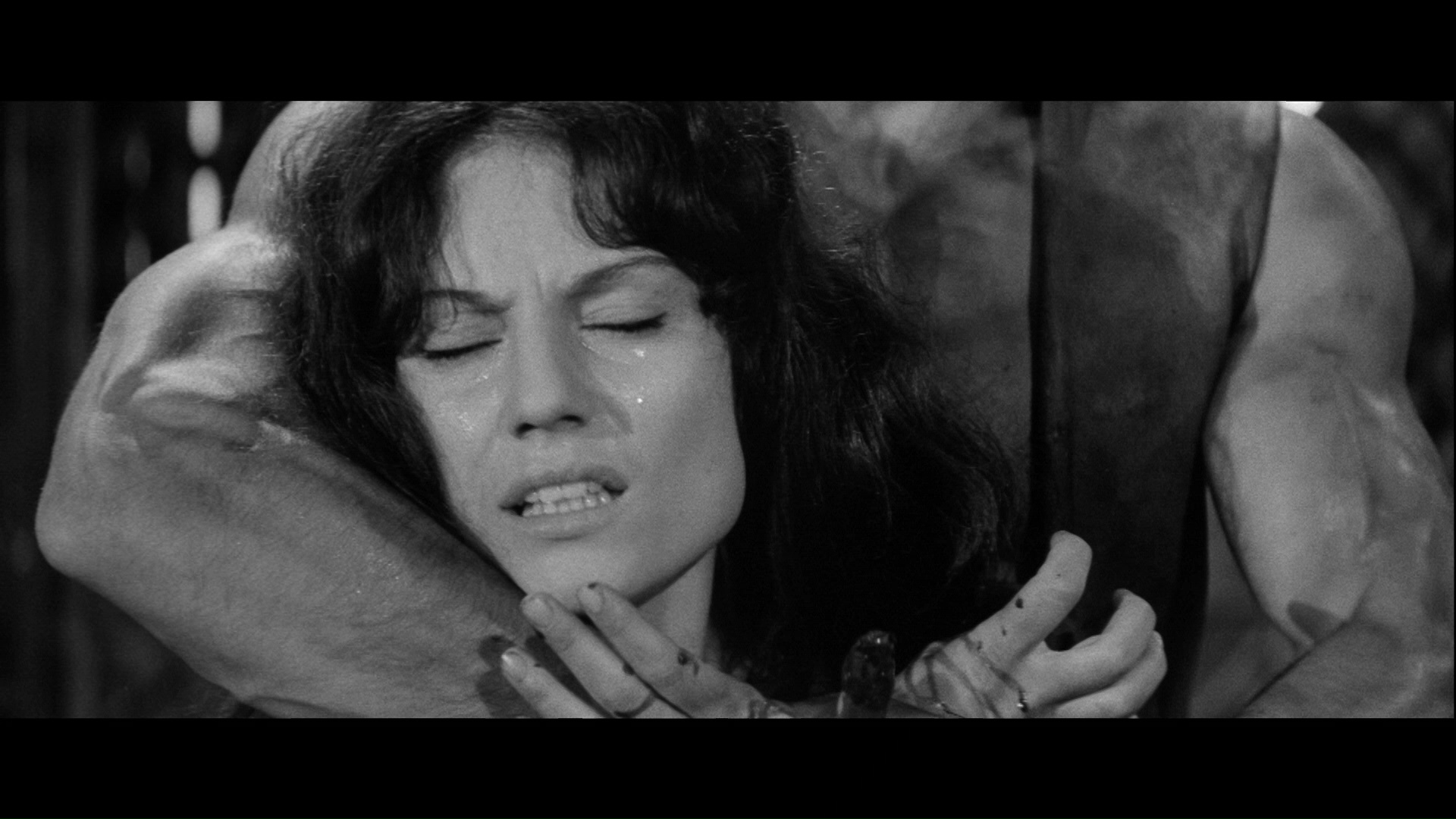 of the more notorious
of the more notorious 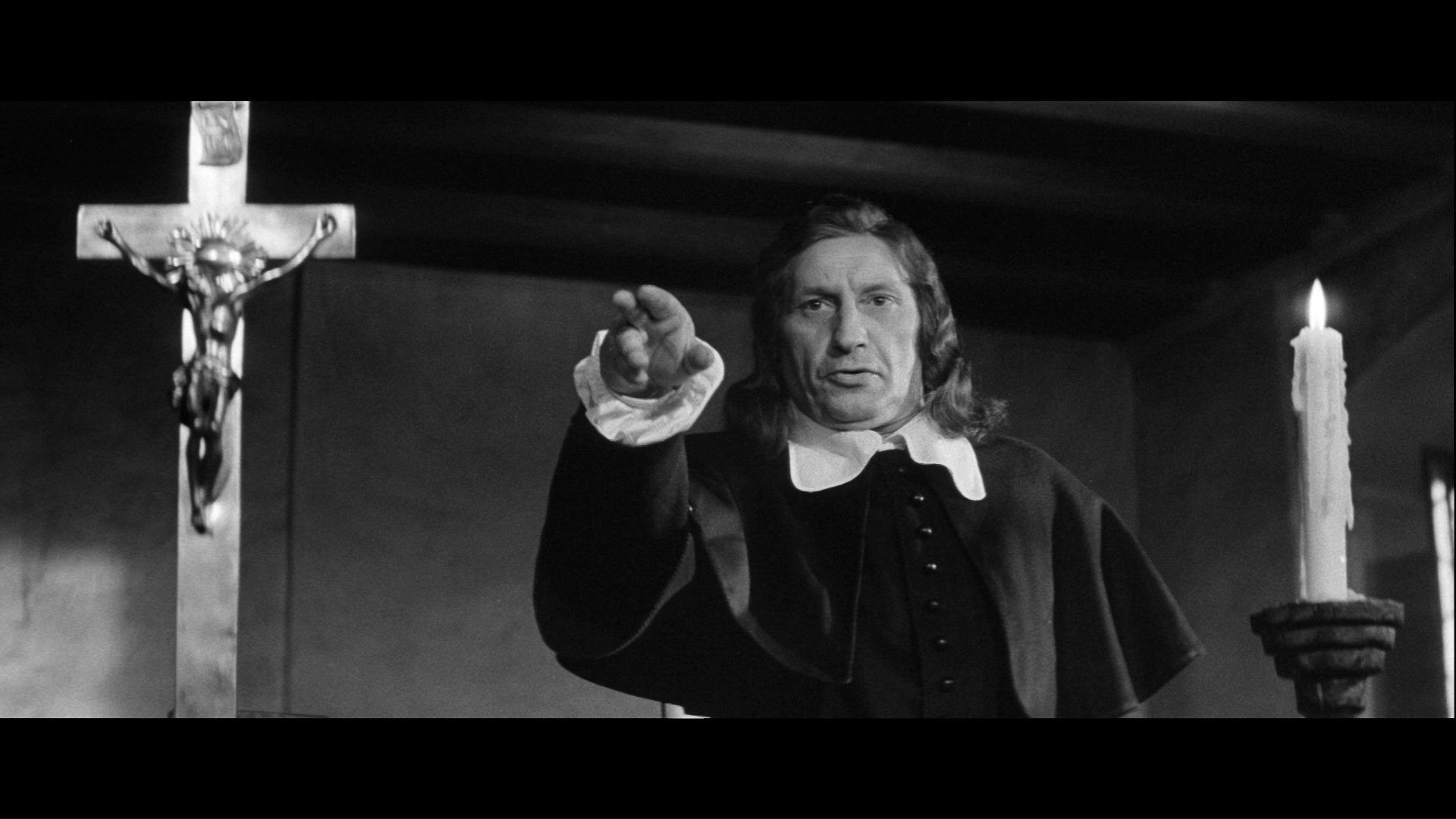 Czech films made in the wake of the Prague Spring, Witchhammer (also known as Witch's Hammer) opened during a spate of European films about witch persecution ranging from the blistering masterpiece Witchfinder General to the exploitation favorite, Mark of the Devil. Anyone expecting more of the same here will be caught off guard to find a dark political allegory more in keeping with the Arthur Miller classic The Crucible, though you do get staples here like thumb torture, piercing of body moles, burnings at the stake, and a surprising amount of nudity. This is no sleaze film, however; it's an artfully made dramatization of inquisition records and would play well as a sobering double feature with Ken Russell's The Devils.
Czech films made in the wake of the Prague Spring, Witchhammer (also known as Witch's Hammer) opened during a spate of European films about witch persecution ranging from the blistering masterpiece Witchfinder General to the exploitation favorite, Mark of the Devil. Anyone expecting more of the same here will be caught off guard to find a dark political allegory more in keeping with the Arthur Miller classic The Crucible, though you do get staples here like thumb torture, piercing of body moles, burnings at the stake, and a surprising amount of nudity. This is no sleaze film, however; it's an artfully made dramatization of inquisition records and would play well as a sobering double feature with Ken Russell's The Devils.
In 1670s Moravia, an elderly impoverished woman is spied trying to smuggle a communion wafer out during a church service rather than consuming it at the altar. Both the clergy and aristocracy grill her about claims that she was offered a supply of peas to bring the wafter out to the local female herbalist as a way to replenish a non-milking cow, which sets off a rapidly escalating witch trial at the hands of inquisitor Boblig von Edelstadt (Smeral) and his infamous book, Malleus Maleficarum 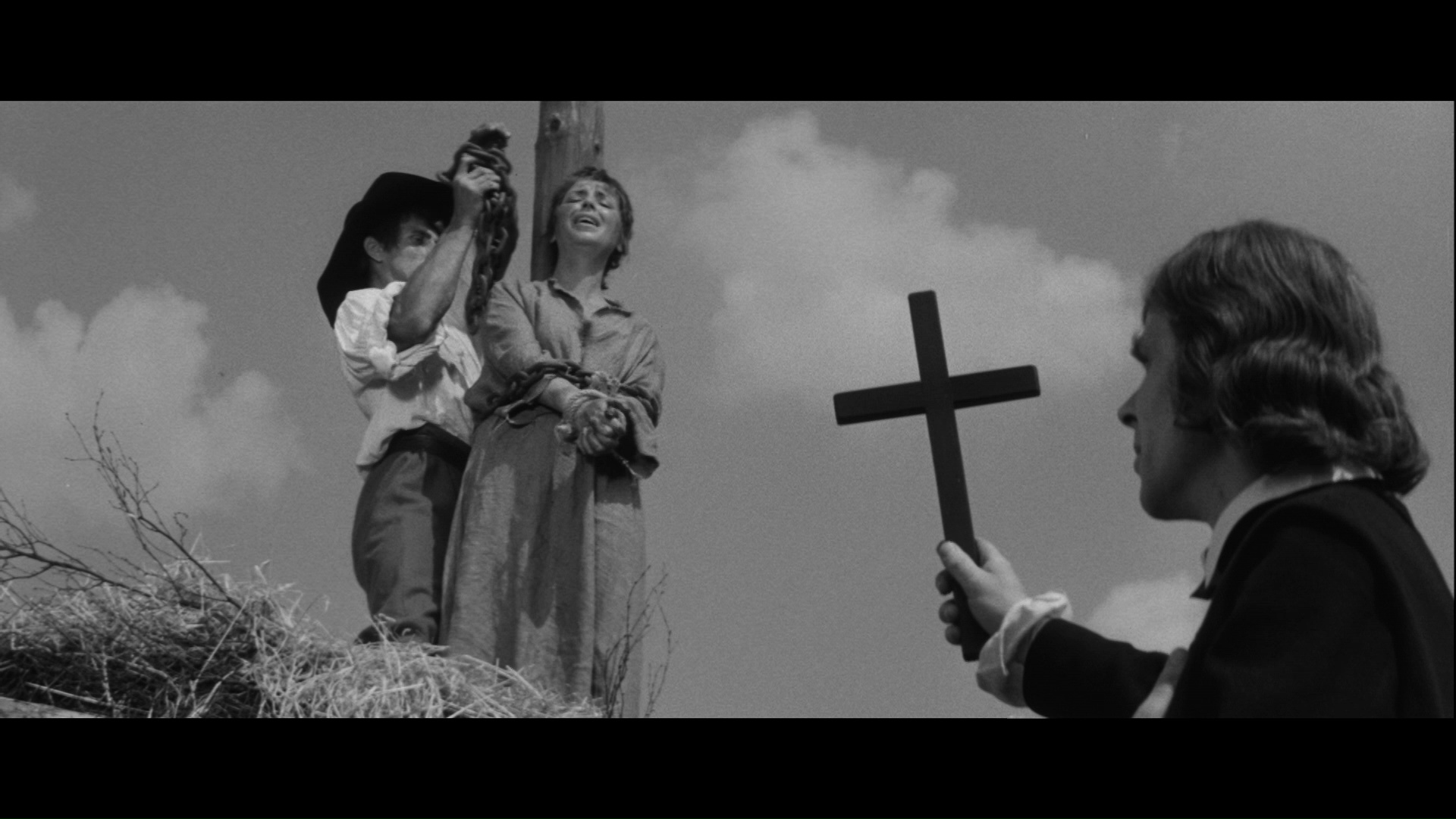 (or the "Witchhammer"). Local priest Lautner (Romancik) comes to criticize these tactics and finds himself in the cross-hairs of Boblig as the village hysteria continues to
(or the "Witchhammer"). Local priest Lautner (Romancik) comes to criticize these tactics and finds himself in the cross-hairs of Boblig as the village hysteria continues to 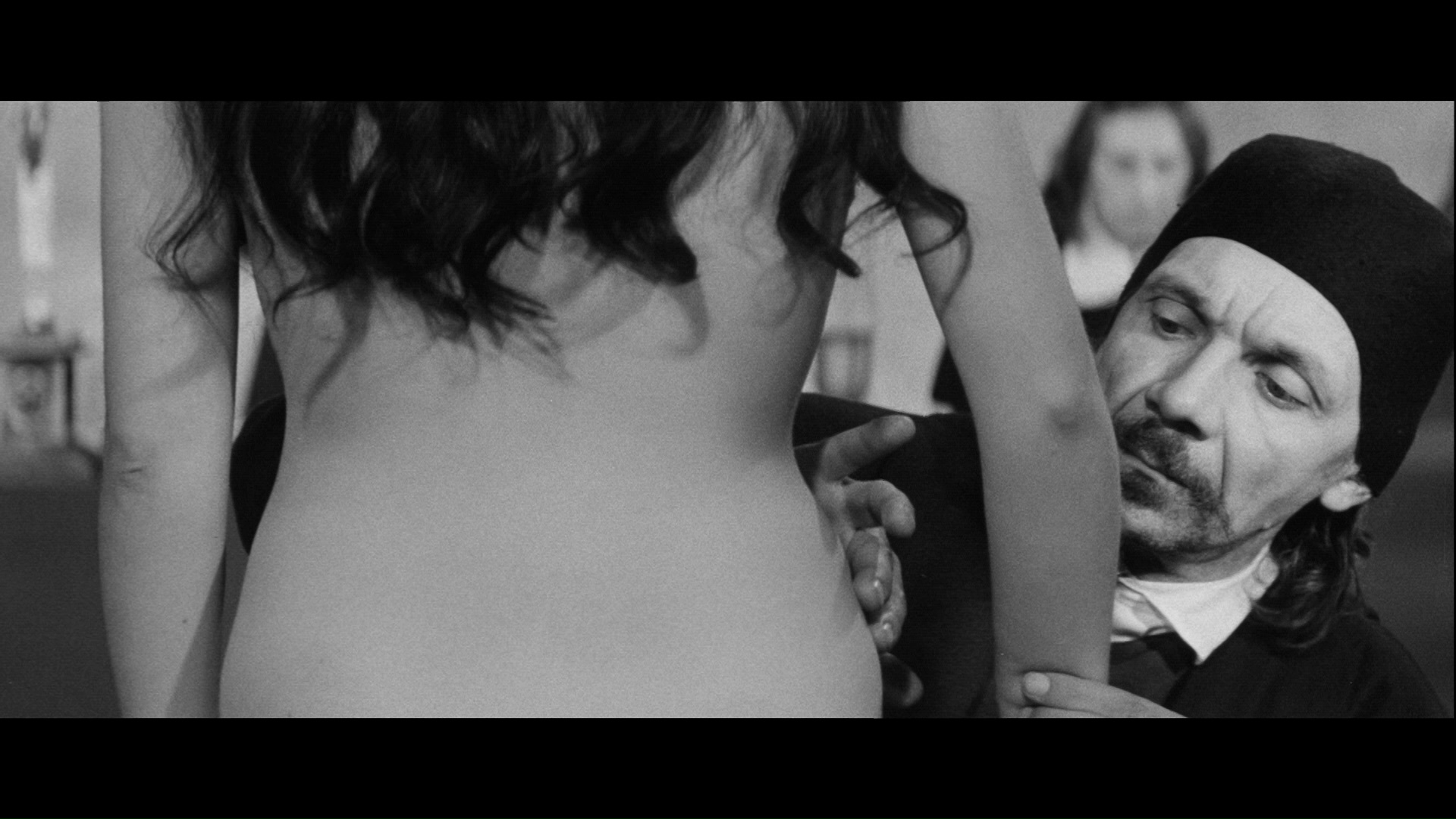 escalate against multiple women in the area.
escalate against multiple women in the area.
Beautifully lensed in scope and highly provocative in its approach, Witchhammer grabs your attention right away by intercutting sinister shots of a hooded man uttering hateful, misogynist religious diatribes with the female population enjoying a warm, friendly public bath, which is soon mitigated by their suffocating attendance at male-dominated church. It's a powerful statement that continues to run through the rest of the film, with the lower classes and especially women kept under the thumb of those in power with little recourse. The film's much-noted metaphorical value as a statement against the oppressive Soviet occupation still holds water, of course, but it's the tension between genders here that really gives the film its fire with a powerful interrogation scene in the second half standing out in particular for its depiction of a woman holding her ground under extremely tortuous circumstances.
Despite its pedigree, this film wasn't terribly well served by the American non-anamorphic DVD from Facets, with burned-in English subtitles tucked in the lower letterbox bar. Much, much better is the 2017 UK 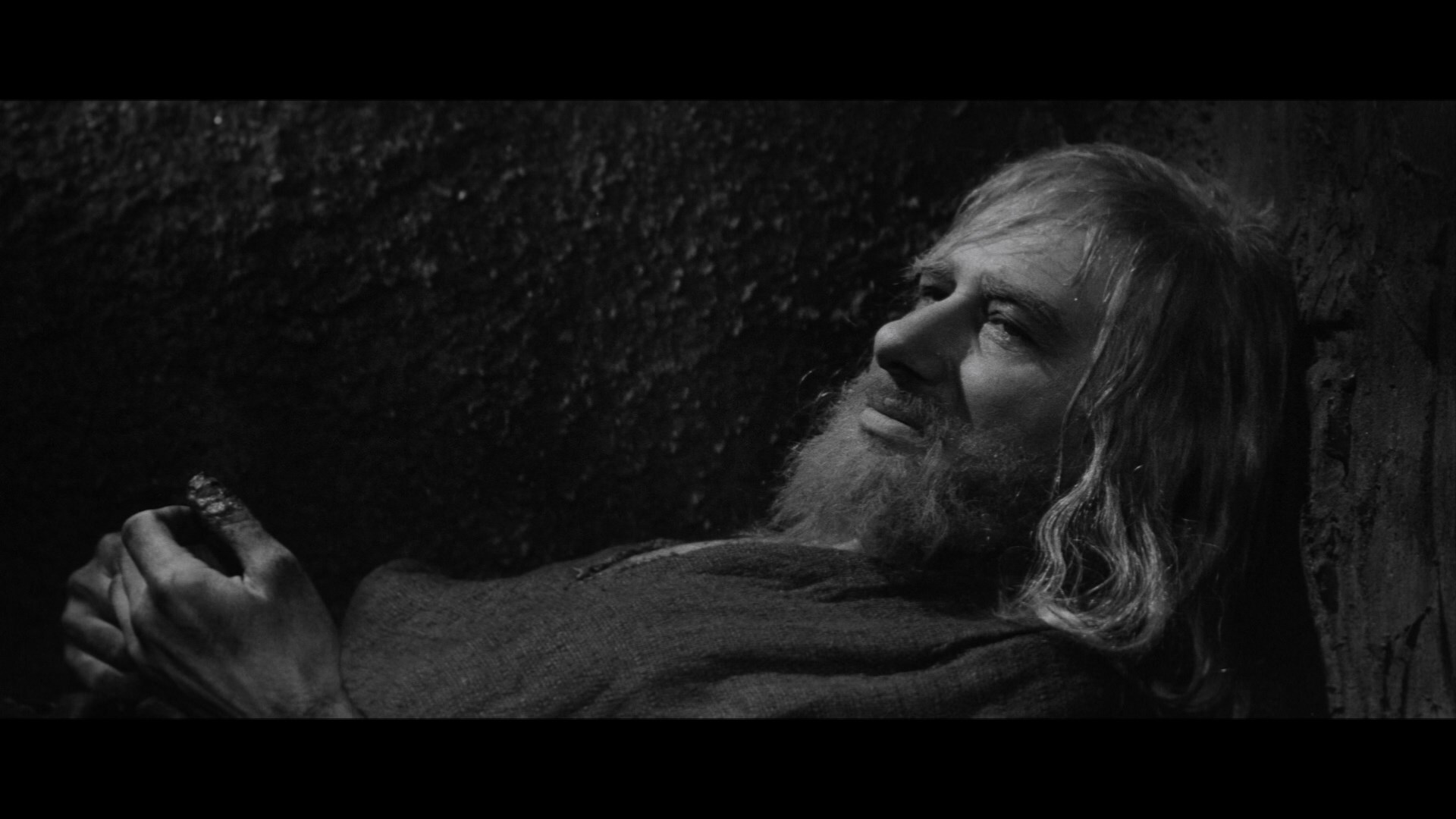 version from Second Run, issued as separate Blu-ray and DVD editions. The new HD transfer from the Czech National Film Archive hasn't undergone an immaculate restoration (you can see some flecks and specks here and there), but it really looks gorgeous with far more depth and detail than past video versions even began to convey. The LPCM
version from Second Run, issued as separate Blu-ray and DVD editions. The new HD transfer from the Czech National Film Archive hasn't undergone an immaculate restoration (you can see some flecks and specks here and there), but it really looks gorgeous with far more depth and detail than past video versions even began to convey. The LPCM 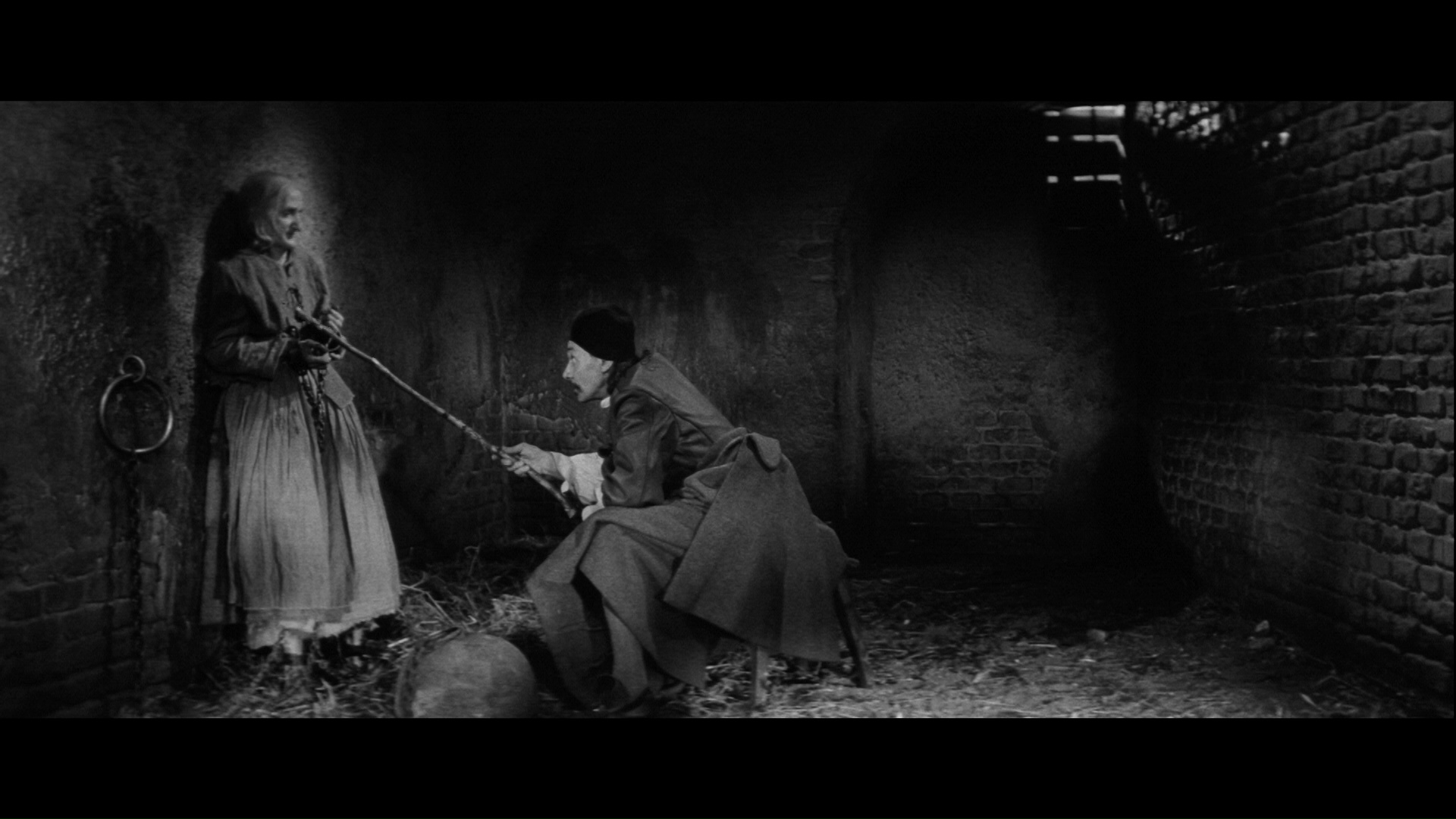 Czech mono track (with optional English subtitles) also sounds excellent.
Czech mono track (with optional English subtitles) also sounds excellent.
The big video extra here is the solid and fascinating "The Womb of Woman Is the Gateway to Hell" (22m21s), a dissection of the film by Kat Ellinger produced and edited by Michael Brooke. The focus here alternates between Vávra's career (which was largely seen as towing the party line before this film became perceived as a harsh critique of the current political regime) and placement of the film in context with other pagan and witch persecution films ranging from Dreyer's Day of Wrath and Tarkovsky's Andrei Rublev to the more infamous late '60s and early '70s films, especially Witchfinder General. Particularly interesting is the segment on the film's female co-writer, Ester Krumbachová, whose work on such other films as Daisies and Valerie and Her Week of Wonders helps draw some tantalizing connections. Also included is an early 1931 experimental short by Vávra, "The Light Penetrates the Dark" (4m46s), and Samm Deighan contributes a lengthy, dense liner notes essay about the historical influences, the source novel by Václav Kaplický, and its relationship to other films themed around witchcraft and religious persecution.
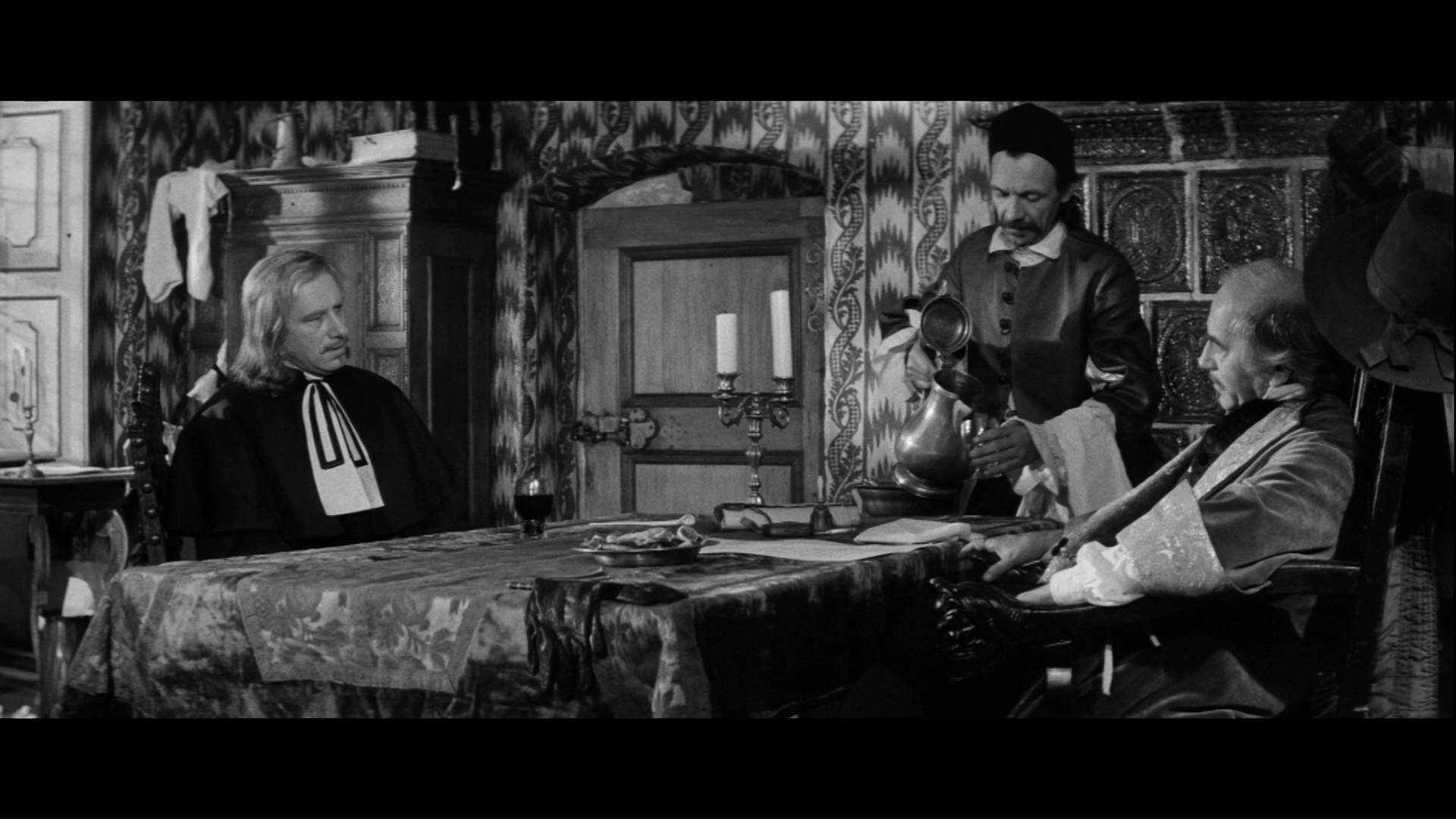
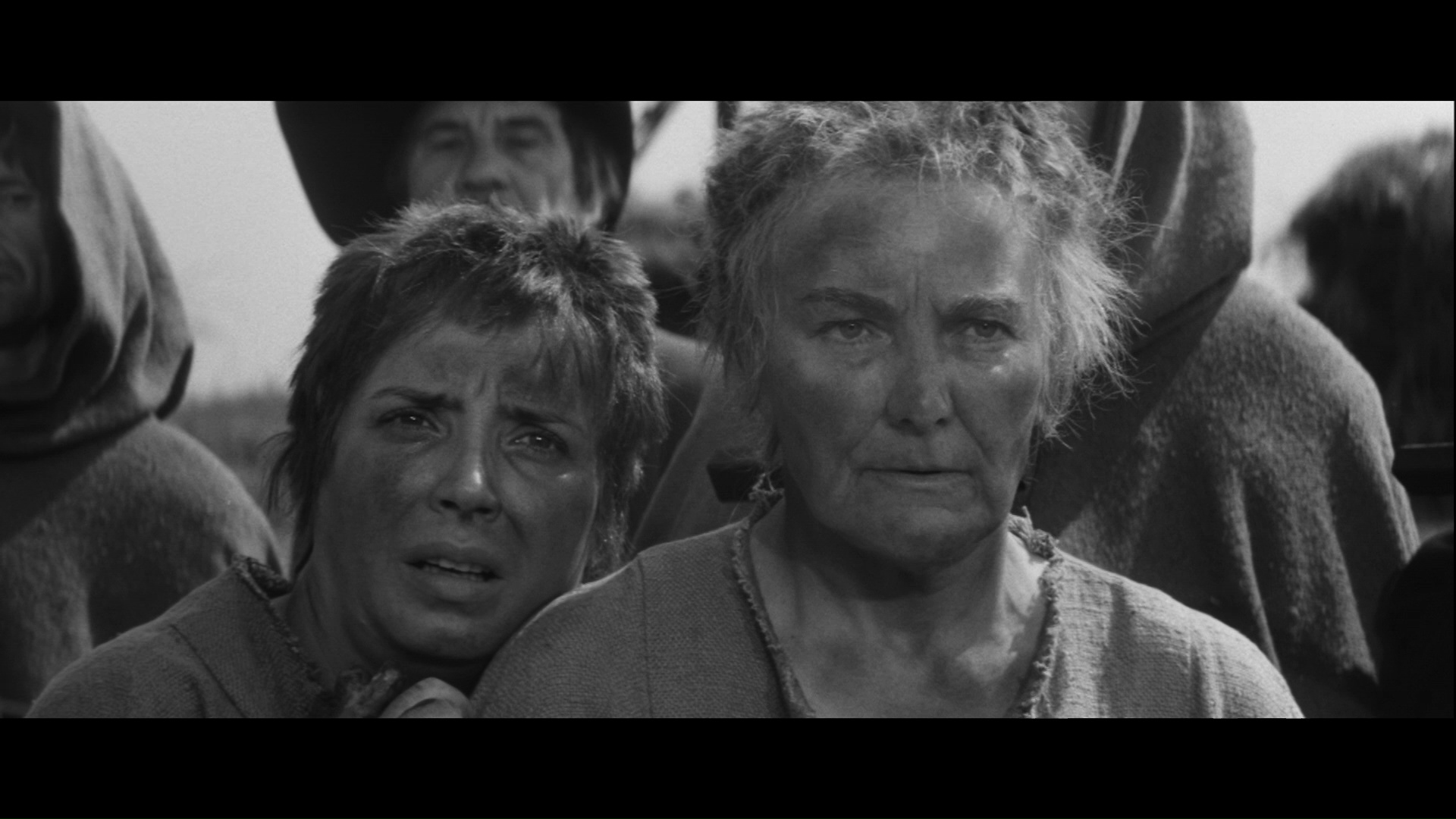

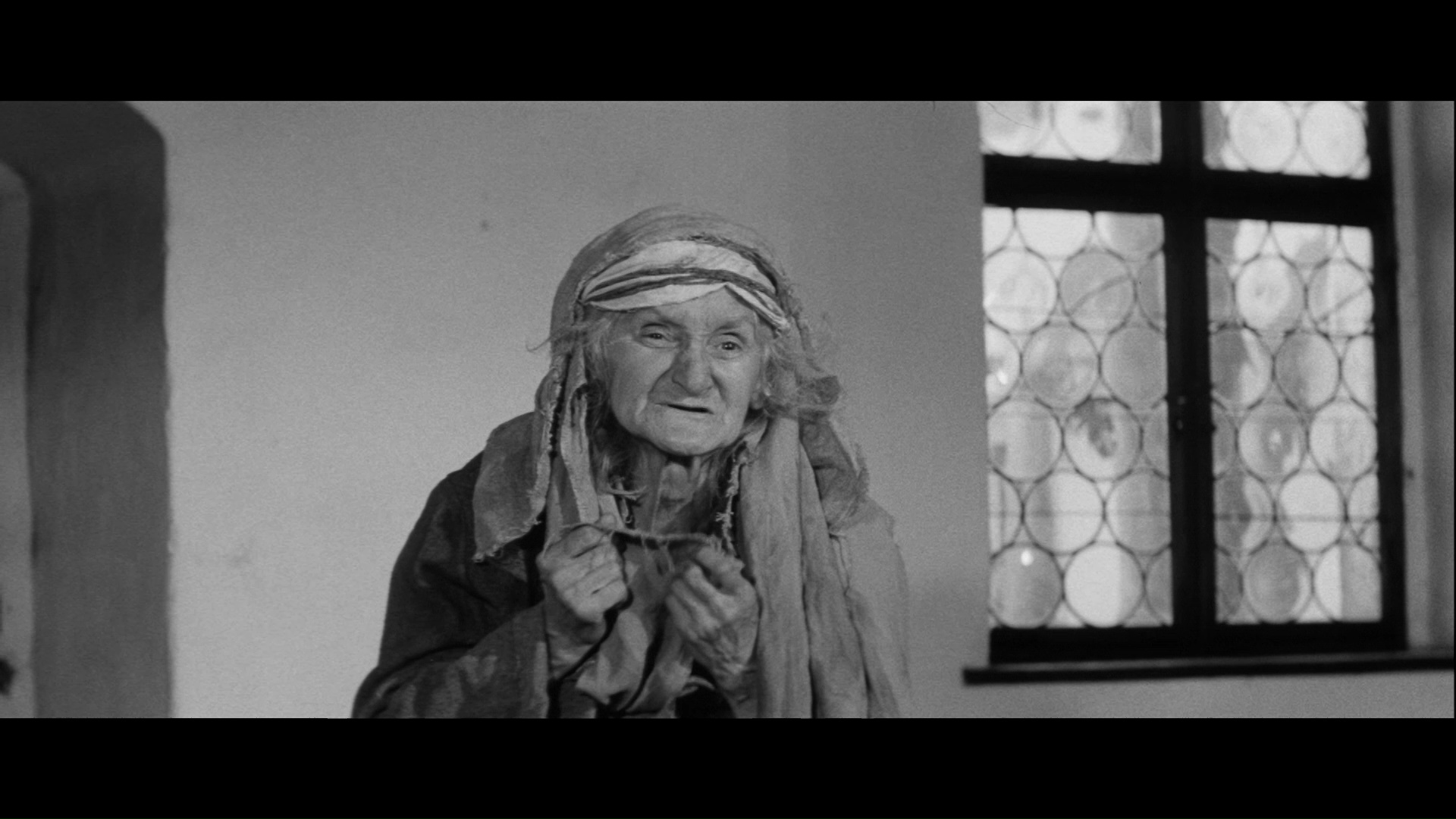
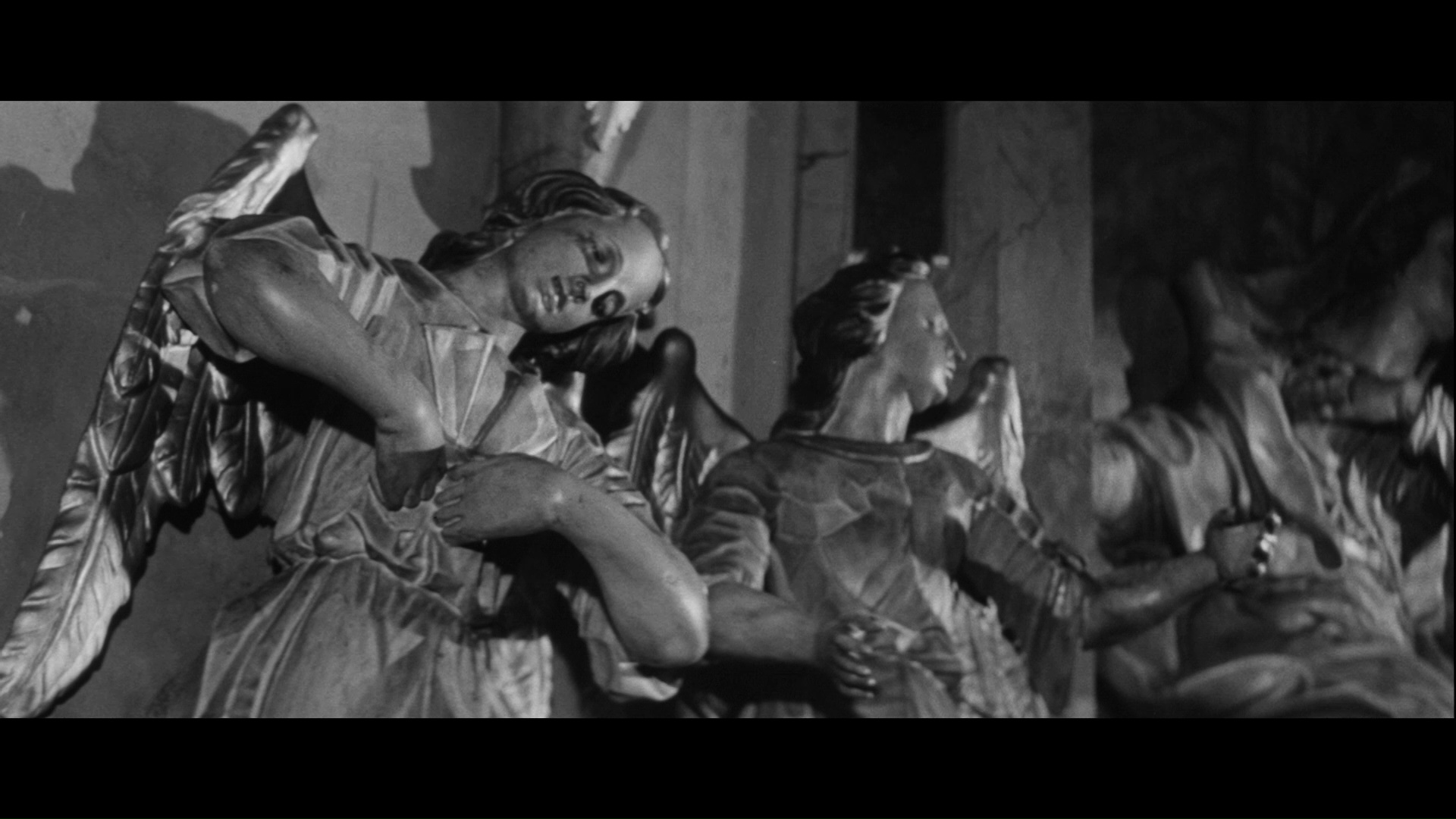
Reviewed on November 9, 2017.



 of the more notorious
of the more notorious  Czech films made in the wake of the Prague Spring, Witchhammer (also known as Witch's Hammer) opened during a spate of European films about witch persecution ranging from the blistering masterpiece Witchfinder General to the exploitation favorite, Mark of the Devil. Anyone expecting more of the same here will be caught off guard to find a dark political allegory more in keeping with the Arthur Miller classic The Crucible, though you do get staples here like thumb torture, piercing of body moles, burnings at the stake, and a surprising amount of nudity. This is no sleaze film, however; it's an artfully made dramatization of inquisition records and would play well as a sobering double feature with Ken Russell's The Devils.
Czech films made in the wake of the Prague Spring, Witchhammer (also known as Witch's Hammer) opened during a spate of European films about witch persecution ranging from the blistering masterpiece Witchfinder General to the exploitation favorite, Mark of the Devil. Anyone expecting more of the same here will be caught off guard to find a dark political allegory more in keeping with the Arthur Miller classic The Crucible, though you do get staples here like thumb torture, piercing of body moles, burnings at the stake, and a surprising amount of nudity. This is no sleaze film, however; it's an artfully made dramatization of inquisition records and would play well as a sobering double feature with Ken Russell's The Devils.  (or the "Witchhammer"). Local priest Lautner (Romancik) comes to criticize these tactics and finds himself in the cross-hairs of Boblig as the village hysteria continues to
(or the "Witchhammer"). Local priest Lautner (Romancik) comes to criticize these tactics and finds himself in the cross-hairs of Boblig as the village hysteria continues to  escalate against multiple women in the area.
escalate against multiple women in the area.  version from Second Run, issued as separate Blu-ray and DVD editions. The new HD transfer from the Czech National Film Archive hasn't undergone an immaculate restoration (you can see some flecks and specks here and there), but it really looks gorgeous with far more depth and detail than past video versions even began to convey. The LPCM
version from Second Run, issued as separate Blu-ray and DVD editions. The new HD transfer from the Czech National Film Archive hasn't undergone an immaculate restoration (you can see some flecks and specks here and there), but it really looks gorgeous with far more depth and detail than past video versions even began to convey. The LPCM  Czech mono track (with optional English subtitles) also sounds excellent.
Czech mono track (with optional English subtitles) also sounds excellent. ![]()